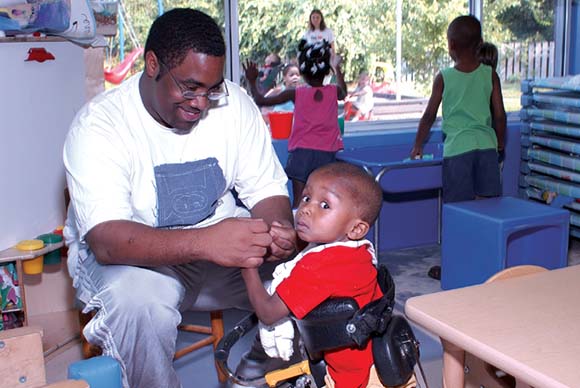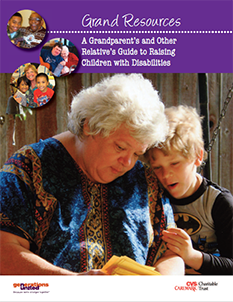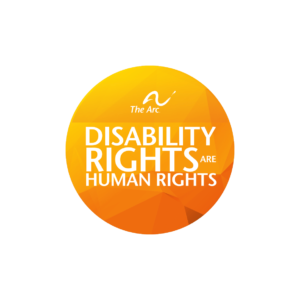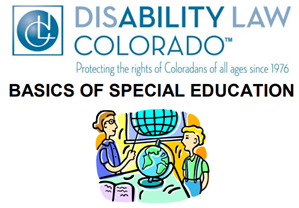
There are fourteen local chapters of the Arc that provide direct advocacy to families. Most chapters provide a form of educational advocacy and adult advocacy services, free of charge. In unserved counties of the state, The Arc of Colorado provides advocacy. Please contact your local chapter if you need direct advocacy assistance.
| New Guidance Helps Schools Support Students with Disabilities and Avoid Discriminatory Use of Discipline
New guidance released July 19, 2022, from the Department of Education’s Office for Civil Rights (OCR) and Office of Special Education and Rehabilitative Services (OSERS) helps public elementary and secondary schools fulfill their responsibilities to meet the needs of students with disabilities and avoid the discriminatory use of student discipline. These newly released resources are the most comprehensive guidance on the civil rights of students with disabilities concerning student discipline and build on the Department’s continued efforts to support students and schools through pandemic recovery. These resources are also available in Spanish. Guidelines and resources for parents, teachers and students can be found on their website here:
|
|
The Arc’s Virtual Program Library
On this site, people with intellectual and developmental disabilities (IDD) and their caregivers can find and share on-demand activities that they can use whenever it is convenient for them in the comfort of their own homes. Service providers can also find and share resources that they can use to facilitate or deliver live, remote programming for people with IDD.
Kinship Families Raising Children With IDD

Grand Resources
A Grandparent’s and Other Relative’s Guide to Raising Children with Disabilities
Public Education Services
Children age 3 through 21 with a disability may be eligible for special education services under the Individuals with Disabilities Act (IDEA).
Information about special education services can be obtained from local school districts or from:
Colorado Department of Education
201 East Colfax Ave
Denver, CO 80203
(303) 866-6600 Phone
(303) 830-0793 Fax
New Special Education Resources in Spanish
See our new resources in Spanish on parents’ rights, early intervention, IEPs, and Section 504.
Colorado Services and Supports for People with Intellectual/Developmental Disabilities

The state of Colorado has many different programs available to assist people with intellectual and developmental disabilities. The cost of most services is covered by a combination of state and federal tax dollars. Colorado Medicaid is publicly funded health insurance for low-income families, children, pregnant women, persons with disabilities or who are blind. Colorado Medicaid is often simply referred to as the State Plan. The State Plan covers the cost of basic medical services. People with intellectual and developmental disabilities who qualify can receive Medicaid services regardless of whether or not they also receive other services specific to their developmental disability.
The Colorado Department of Health Care Policy and Financing (HCPF) is the state Medicaid agency. For information about Medicaid eligibility and benefits, contact:
Colorado Department of Health Care Policy and Financing
303 East 17th Avenue 7th Floor Conference Room. Denver, CO 80203
(303) 866-2993 Phone
(303) 866-4411 Fax
Colorado’s Service Delivery System
Developmental Disability Services—Community Centered Boards
Community based services (HCBS Medicaid waivers, Early Intervention, and Family Support) for people with intellectual and developmental disabilities in Colorado are provided through a system of 20 Community Centered Boards (CCB). CCBs serve defined geographic areas of the state. The CCB is the Single Entry Point for eligibility determination and coordination of resources (case management.) Individuals can choose from many different service providers or receive services directly from the CCB in some areas of the state.
For contact information and a map of CCB service areas click here.
Supported Decision-Making
Visit our Supported Decision-Making page for information and resources.



